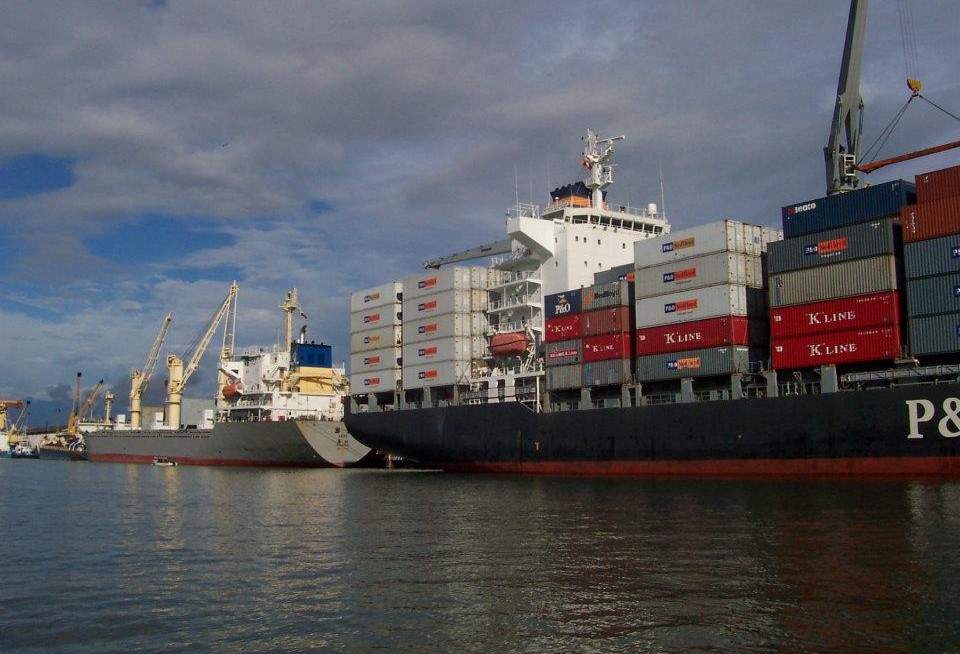
Colombia: Big Business for US Exporters
Trade with Colombia is big business for US exporters—amid growing Chinese influence in Latin America.
BY GEOFF RAMSEY AND
ENRIQUE MILLÁN-MEJÍA
In recent weeks, US-Colombia commercial ties attracted attention amid increasing frustration in Washington over Colombian President Gustavo Petro’s missteps at home. Under his watch, Colombia’s security situation has worsened dramatically, the economy has seen sluggish growth, and his ill-advised initial resistance to cooperating with the United States on repatriation flights have set US-Colombia relations back significantly. While Petro backpedaled quickly and is now signaling he will cooperate with US migration policy, the January diplomatic crisis provides an opportunity to take a closer look at the trade relationship with Colombia. These dynamics go beyond just dollars and cents—they have serious implications for the projection of US influence in our hemisphere. According to Colombia’s National Administrative Department of Statistics (DANE), Chinese imports in the month of January outpaced US imports. If this trend continues the United States could lose ground to China with a key US partner.
Though Colombian imports of goods like crude oil, coffee, cut flowers, bananas, avocados, and precious metals are all important to the US economy, the true value of the relationship from a US perspective lies in Colombia’s market for US exports. Last year, the total value of US exports to Colombia exceeded the value of imports by $1.3 billion, meaning the United States has a trade surplus with the country.
The export market in Colombia is especially crucial to US agricultural producers. In fact, Colombia has long represented a significant opportunity due to its sizable consumer base, relatively higher income levels compared to other countries in the region, and its proximity to other key markets. One product that has benefited from the TPA in particular is yellow corn. Prior to the free trade agreement, Colombia imported yellow corn primarily as raw material for animal feed in industries such as poultry and pork production. But before the agreement took effect, Colombia sourced this corn from Brazil, Canada, and other countries—often at higher prices and not necessarily with the same quality standards as those offered by US producers.
Today, US exports of yellow and white corn to Colombia exceed $1 billion in annual sales. This has contributed significantly to the growth of Colombia’s poultry, pork, and inland fishing industries, and it has benefited US farmers in states like Iowa, Kansas, Illinois, and Nebraska.
This is win-win trade. Cheaper animal feed means broader availability of protein and improved nutrition in developing areas of Colombia. It’s also true that Colombian corn cannot serve as a viable raw material for balanced animal feed, which means that US exports of corn are meeting a need that Colombia can’t address on its own. Consequently, the development of a domestic industry in this sector does not necessarily depend on restricting imports.
Beyond yellow corn, several other US agricultural exports would be affected by any worsening of trade relations with Colombia. These include soybeans, soybean cakes, wheat, rice, cotton, apples, grapes, strawberries, and processed livestock products such as pork and beef. The US exports nearly $3 billion in total agricultural exports to Colombia. Exposing these exports to reciprocal tariffs or effectively ending the TPA could severely impact US producers in these sectors.
The prescription: Keep trade relations on track
It is a safe bet that the US-Colombia relationship will encounter more turbulence. Petro’s missteps will continue, and US frustration with his administration is a bipartisan sentiment. But the US-Colombia relationship—from security and counternarcotics interests to US commercial interests—has value for both nations. Opening the TPA to renegotiation is unlikely to move forward in the US Congress, and it could very well hand a political victory to Petro himself. A longtime critic of free trade with the United States, the Colombian president may see ending the trade agreement as a win—at the expense of US exporters. Similarly, a trade war may ultimately harm American interests.
If US policymakers are interested in adjusting the terms of the agreement, they can do so through the joint Free Trade Commission (FTC), where representatives from both countries propose new interpretations of key provisions following discussions with respective stakeholders, particularly the private sector and lawmakers. Most recently, in January 2025, the FTC convened after months of bilateral negotiations and announced updated interpretations of investment protection standards. The FTC also issued interpretive notes in 2013 and 2018 on other matters of interest, including agricultural trade, services, and intellectual property
Bottom Lines
Though bilateral relations at the government level may sour, there is a clear role for the private sector in de-escalating diplomatic tensions between Colombia and the United States. For many US agricultural exporters, finding an alternative market abroad like Colombia—its size, proximity, and possession of an active FTA—is no easy task.
While the economic consequences of a trade war are likely to be more severe for Colombia than for the United States, it would not come without a cost. US states with key producers of agricultural goods are at risk in a potential trade dispute. The origin states for these exports include Nebraska, Iowa, Kansas, Ohio, Louisiana, Missouri, and Texas. And Florida, New Jersey, New York, and California play essential roles as hubs (i.e., seaports, airports) facilitating trade with Colombia.
The good news is that a trade war is not inevitable. The United States has leverage to prevent trade tensions from escalating by using diplomatic channels and fostering cooperation. Through the public and private sectors, the United States can work to maintain stability and protect mutual economic interests.
Geoff Ramsey is a senior fellow at the Atlantic Council’s Adrienne Arsht Latin America Center. Enrique Millán-Mejía is a Senior Fellow, Economic Development, at the Adrienne Arsht Latin America Center.Originally published by the Atlantic Council. Republished with permission from the authors.












